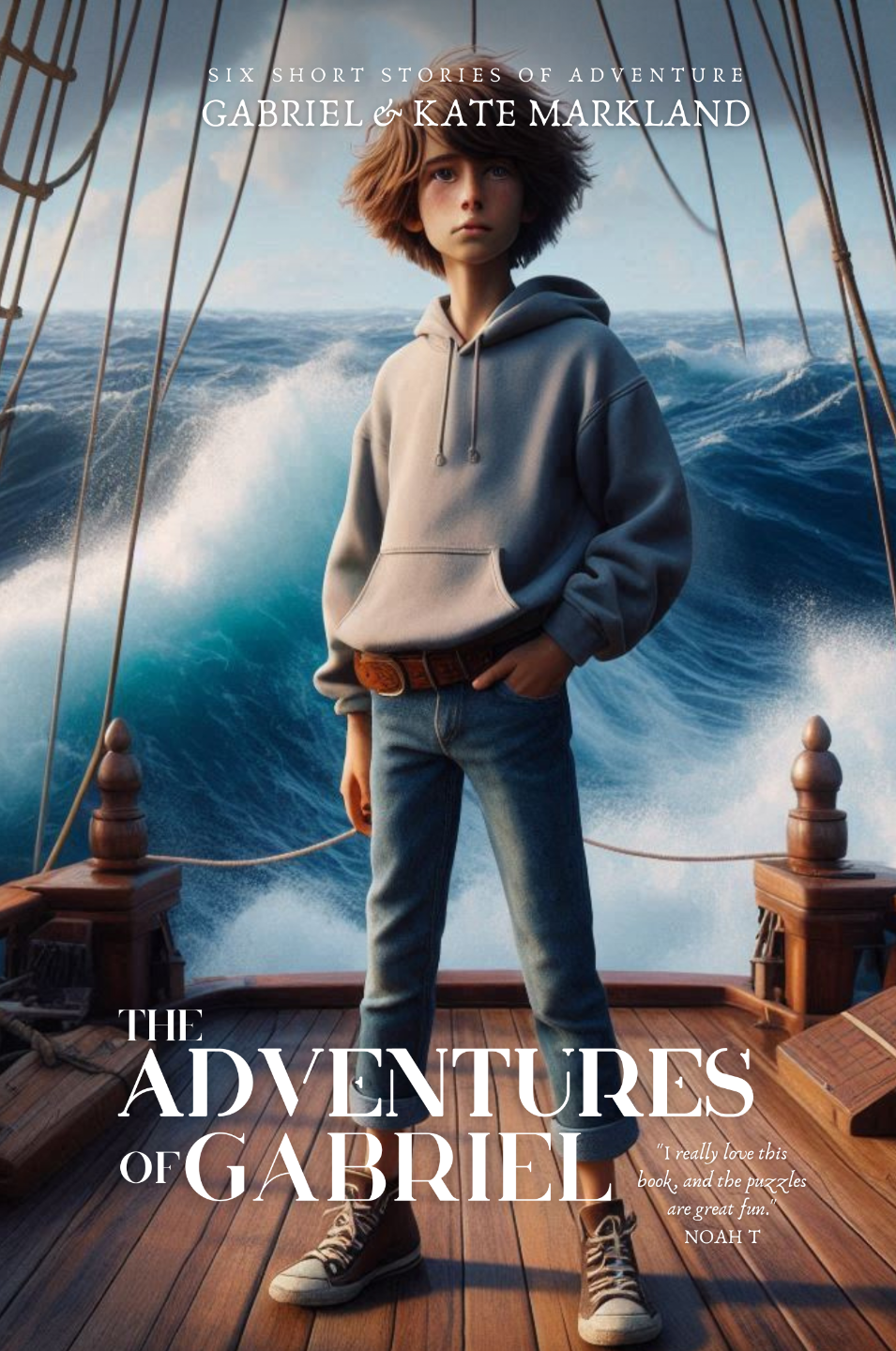Turning Pain into Power
Feb 08, 2025
How Storytelling Helps Children Heal from Adverse Childhood Experiences
In homes, classrooms, and communities across Gloucestershire and the UK, thousands of children are living with the invisible impact of Adverse Childhood Experiences (ACEs), traumatic events like domestic abuse, parental separation, neglect, or household substance misuse. According to Gloucestershire County Council, nearly half of adults in the region report having experienced at least one ACE in their childhood, with 1 in 10 reporting four or more, a level associated with significantly increased risk of mental illness, violence, and poor life outcomes.
But early trauma doesn’t have to define a child’s future.
The Adventures of Gabriel, a storytelling project created by 11-year-old Gabriel Khan and his mother, Kate Markland, began as a quiet attempt to help one child process overwhelming emotions. Today, it’s a growing, trauma-informed educational programme, and a model for post-ACEs healing that’s gaining national and international recognition.
Why Storytelling Works in ACE Recovery
Neuroscience and trauma research are clear: children who experience adversity often struggle with emotional regulation, trust, and verbal expression. Their developing brains become wired for survival, not creativity. Standard educational or therapeutic approaches may not reach them.
Storytelling does.
The StoryQuest™ method used in The Adventures of Gabriel helps children:
-
Transform fear into fictional monsters they can outwit
-
Process grief and anger through metaphors and quests
-
Safely explore real feelings through imagined worlds
-
Become heroes in stories shaped by their own voice
This isn’t escapism — it’s neurobiological and emotional restoration.
“Children with four or more ACEs are 32x more likely to face behavioural challenges. But positive experiences, trusted adults, and supportive environments can offset this risk.” Gloucestershire ACEs Strategy, 2022
What the Children Say
“I believed in myself and created things I didn’t even know I could do.” — Year 6 pupil
“Normally the teacher tells us what to do. But this time we were free.” — Year 5 pupil
For children impacted by trauma, creative safety is key. When they feel heard and in control, emotional literacy and confidence flourish, and ACEs lose their grip.
What the Data Shows
The programme’s early outcomes speak volumes:
-
90% of pupils completed their own original stories
-
Children previously disengaged in class asked to stay behind to keep writing
-
Teachers reported better emotional regulation and classroom cohesion
-
Pupils disclosed meaningful feelings through fiction for the first time
These results align with Gloucestershire’s child safeguarding priorities, especially in light of the 2023 findings that nearly 3,000 children in the county are living with the impact of domestic abuse, with 70% of referrals to early help services linked to family trauma【CYP Impacted by DA Report, 2023】.
A Gloucestershire-born Model of Hope
Gabriel’s story, shaped from his own experiences as a British-Pakistani boy growing up in Cheltenham, shows that identity, voice, and creativity are powerful tools for change.
The programme has been recognised by:
-
The British Psychological Society (2025)
-
The European Conference on Education
-
Gloucestershire schools piloting the approach to improve wellbeing and writing
A Message for Parents, Teachers, Policymakers and Police
We can’t erase what children have lived through. But we can create spaces where they can begin to make sense of it, safely. Storytelling, especially when embedded in schools, offers a scalable, low-cost, evidence-informed way to help children:
-
Build emotional regulation
-
Trust safe adults
-
Feel proud of their voice and culture
-
Begin recovery from trauma
This is precisely the kind of early intervention promoted by Gloucestershire’s ACEs strategy, which calls for “more trauma-informed settings across education, health and community support services.”
Final Word
“Healing doesn’t always begin in a therapist’s office. Sometimes, it begins with a child being told: Your story matters.” — Kate Markland,










